Your search “Keep%20ethe%20eDeacth%20ePenalty%abolished%20ein%20ethe%20ePhilippfines%20e%20e%20e%20e%20e%20e%20e%20e%20e%20e/page/www.humanrights.asia/resources/report/20e11/AHRC-sur-008-20e11/act_download/file ”
Document(s)
Cameroun: NGO Report on the Implementation of the ICCPR
By Gender Empowerment and Development / Association de Lutte contre les Violences faites aux Femmes / Centre for Civil and Political Rights / Solidarité Pour la Promotion des Droits de l’Homme et des Peuples / Association pour la défense de l’homosexualité / Syndicat National des Journalistes du Cameroun, on 1 January 2010
2010
NGO report
frMore details See the document
Cameroon, with a population of approximately 18 million, has a multiparty system of government, with the current ruling party Cameroon People’s Democratic Movement (CPDM) in power since it was created in 1985. The president retains the power to control legislation or to rule by decree. Although the civilian authorities do generally maintain effective control of the security forces, security forces sometimes act independently of government authority. Authorities arbitrarily arrest and detain citizens for different reasons. Among those arbitrarily arrested and detained are human rights defenders and other activists and persons not carrying government-issued identity cards. There are incidents of prolonged and sometimes incommunicado pretrial detention and infringement on privacy rights. The government restricts freedom of speech, press, assembly, and association, and harasses journalists and human rights defenders. Other problems include widespread official corruption, societal violence, discrimination against women, the trafficking of children and girls, and discrimination against homosexuals. The government restricts worker rights and activities of independent labor organizations. The diverse cultural beliefs and ethnic groups promote to a large extend discrimination against and violations of women and young people, widows and the divorced. This report specifically highlights violations in 2008 and 2009, with a few violations in other years.
- Document type NGO report
- Themes list Networks,
- Available languages Cameroun: Rapport de la société civile sur la mise en oeuvre du PIDCP
Document(s)
The Death Penalty in Taiwan: a Report on Taiwan’s legal obligations under the ICCPR
By David T. Johnson / The Death Penalty Project / Wen-Chen Chang, on 8 September 2020
2020
NGO report
Taiwan
More details See the document
The report highlights specific aspects of Taiwan’s domestic legal order that does not meet the minimum standards under the International Covenant on Civil and Political Rights (ICCPR). Taiwan passed legislation to incorporate the ICCPR into the domestic legal order in 2009, yet the current death penalty practice is largely out of line with the contemporary understanding of the ICCPR as it relates to the death penalty.
- Document type NGO report
- Countries list Taiwan
- Themes list International law, Country/Regional profiles,
Document(s)
Annual Report On The Death Penalty In Iran 2017
By Ensemble contre la peine de mort (ECPM) / Iran Human Rights (IHR), on 1 January 2018
2018
NGO report
frMore details See the document
The 10th annual report on the death penalty by Iran Human Rights (IHR) provides an assessment and analysis of the death penalty trends in 2017 in the Islamic Republic of Iran.The report sets out the number of executions in 2017, the trend compared to previous years, charges, geographic distribution and a monthly breakdown of executions.
- Document type NGO report
- Themes list Death Penalty,
- Available languages Rapport Annuel sur la peine de mort annuel en Iran 2017
Document(s)
2018 Report – Moratorium on the use of the death penalty
By United Nations, on 14 October 2020
2020
United Nations report
aresfrruzh-hantMore details See the document
- Document type United Nations report
- Available languages تقرير 2018- وقف العمل بعقوبة الإعدامInforme 2018 - Moratoria del uso de la pena de muerteRapport 2018 - Moratoire sur l'application de la peine de mortДоклад 2018 - Мораторий на применение смертной казни2018报告 - 暂停使用死刑联合国
Document(s)
Annual report on the death penalty in Iran 2014
By Ensemble contre la peine de mort (ECPM) / Iran Human Rights (IHR), on 1 January 2015
2015
NGO report
More details See the document
The seventh annual report of Iran Human Rights (IHR) on the death penalty gives an assessmentof how the death penalty was implemented in 2014 in the Islamic Republic of Iran.In addition to providing the number of executions that were conducted, the report alsolooks at the trends compared to previous years, the methods of execution, geographicaldistribution, the charges that were used by authorities to justify the executions and thearticles in the penal law that were used to issue the death sentences. Lists of the womenand juvenile offenders executed in 2014 are also included.
- Document type NGO report
- Themes list Juveniles, Minorities, Religion , Due Process , Fair Trial, International law, Capital offences, Drug Offences, Hanging, Statistics,
Document(s)
Annual report on the death penalty in Iran 2015
By Ensemble contre la peine de mort (ECPM) / Iran Human Rights (IHR), on 1 January 2016
2016
NGO report
faMore details See the document
The 8th annual report of Iran Human Rights (IHR) on the death penalty provides an in-depth assessment of how the capital punishment was implemented in 2015 in the Islamic Republic of Iran.In addition to providing the number of executions that were conducted, the report also looks at the trends compared to previous years, the methods of execution, geographical distribution, the charges that were used by authorities to justify the executions and the articles in the penal law that were used to issue the death sentences.
- Document type NGO report
- Themes list Statistics, Country/Regional profiles,
- Available languages بخش اول از گزارش سالانه اعدام - دستکم ۷۵۳ اعدام در سال ۲۰۱۴
Document(s)
From Cradle to Coffin: A Report on Child Executions in Iran
By Stop Child Executions / Foreign Policy Center, on 1 January 2009
2009
NGO report
More details See the document
This report aims to briefly highlight the past and present challenges and choices in Iran’s human rights record on juvenile offenders. It considers legal and theological perspectives on key issues as well as presenting case studies on selected individuals whose mistreatment raises serious questions about the injustices faced by young people in the Iranian judicial system. The report offers practical recommendations to the international community as it takes a closer look at the Islamic Republic and its human rights record through the 2010 Universal Periodic Review.
- Document type NGO report
- Themes list Juveniles,
Document(s)
World Day Against the Death Penalty Report 2007
By World Coalition Against the Death Penalty, on 1 January 2007
2007
Campaigning
frMore details Download [ pdf - 2594 Ko ]
World Coalition Report: No to the Death Penalty! The World decides 10 October 2007 World Day against the Death Penalty. The actions of the world coaltion and their iniatives during the World Day 2007 campaign can be found in this report.
- Document type Campaigning
- Themes list Networks,
- Available languages Rapport de la Journée Mondiale Contre la Peine de Mort 2007
Document(s)
2016 Report – Moratorium on the use of the death penalty
By United Nations, on 8 September 2020
2020
United Nations report
rufrzh-hantesMore details See the document
The present report is submitted to the General Assembly pursuant to its resolution 69/186. It discusses developments towards the abolition of the death penalty and the establishment of moratoriums on executions. The report also reflects on trends in the use of the death penalty, including the application of international standards relating to the protection of the rights of those facing the death penalty. It also discusses the role of national human rights institutions and private companies, as well as regional and international initiatives for advancing the abolition of the death penalty.
- Document type United Nations report
- Themes list International law, Moratorium , Trend Towards Abolition,
- Available languages Доклад 2016 - Мораторий на применение смертной казниRapport 2016 - Moratoire sur l’application de la peine de mort2016报告 - 暂停使用死刑Informe 2016 - Moratoria del uso de la pena de muerte
Document(s)
A year-end compilation of death penalty data for the state of Missouri : Annual Report 2015
By Missourians for Alternatives to the Death Penalty, on 1 January 2015
2015
NGO report
More details See the document
MADP released its annual report which highlights some of the major problems with Missouri’s broken death penalty system. Here is a snapshot of the death penalty in Missouri in 2015: 6 executions in 2015 but no new death sentences in Missouri in 2015.
- Document type NGO report
- Themes list Country/Regional profiles,
Document(s)
Human Rights and Democracy: The 2010 Foreign & Commonwealth Office Report
By United Kingdom Foreign & Commonwealth Office, on 8 September 2020
2020
NGO report
Afghanistan
More details See the document
The report covers the period from January to December 2010, though some key events in early 2011 have also been included. It highlights the important progressbeing made, serious concerns that we have, and what we are doing to promote our values around the world. It will rightly be studied closely by Parliament, NGOs and the wider public. There is a chapter dedicated to the death penalty, as well as 2010 figures on the death penalty in target countries.
- Document type NGO report
- Countries list Afghanistan
- Themes list Networks,
Document(s)
Capital punishment and implementation of the safeguards guaranteeing protection of the rights of those facing the death penalty : report of the Secretary-General
By United Nations / Economic and Social Council, on 1 January 2015
2015
United Nations report
rufrzh-hantesMore details See the document
The Economic and Social Council, by its resolution 1745 (LIV) of 16 May 1973, invited the Secretary-General to submit to it, at five-year intervals starting from 1975, periodic updated and analytical reports on capital punishment. The Council, by its resolution 1995/57 of 28 July 1995, recommended that the quinquennial reports of the Secretary-General should continue to cover also the implementation of the safeguards guaranteeing protection of the rights of those facing the death penalty. By the same resolution, the Council requested the Secretary-General, in preparing the quinquennial report, to draw on all available data, including current criminological research. The present ninth quinquennial report reviews the use of and trends in capital punishment, including the implementation of the safeguards during the period 2009-2013.
- Document type United Nations report
- Themes list International law, Trend Towards Abolition, Most Serious Crimes,
- Available languages Смертная казнь и применение мер, гарантирующих защиту прав тех, кому грозит смертная казнь : Доклад Генерального секретаряPeine capitale et application des garanties pour la protection des droits des personnes passibles de la peine de mort : Rapport du Secrétaire général死刑和保护死刑犯权利的保障措施的执行情况 : 秘书长的报告La pena capital y la aplicación de las salvaguardias para garantizar la protección de los derechos de los condenados a la pena de muerte : Informe del Secretario General
Document(s)
The Death Penalty in 2013: Year End Report
By Death Penalty Information Center / Richard C. Dieter, on 1 January 2013
2013
NGO report
More details See the document
On December 19, the Death Penalty Information Center released its annual report on the latest developments in capital punishment, “The Death Penalty in 2013: Year End Report.” In 2013, executions declined, fewer states imposed death sentences, and the size of death row decreased compared to the previous year. The number of states with the death penalty also dropped, and public support for capital punishment registered a 40-year low. There were 39 executions in the U.S., marking only the second time in 19 years that there were less than 40. Just two states, Texas (16) and Florida (7), were responsible for 59% of the executions. The number of death sentences (80) remained near record lows, and several major death penalty states, inclucing Virginia, South Carolina, Tennessee, and Louisiana, imposed no death sentences this year. Maryland became the sixth state in six years to abolish capital punishment.
- Document type NGO report
- Themes list Trend Towards Abolition, Statistics,
Document(s)
Annual Report of the Death Penalty in Iran in 2010
By Iran Human Rights (IHR), on 1 January 2010
2010
NGO report
faMore details See the document
The annual report of the death penalty in 2010 shows a dramatic increase in the number of executions compared to the previous years. The number of annual executions in 2010 in Iran is probably the highest since the mass executions of political prisoners in the summer of 1988.
- Document type NGO report
- Available languages سازمان حقوق بشر ایران: گزارش سالانه اعدام در سال میلادی ۲۰۱۰
Document(s)
EVALUATING FAIRNESS AND ACCURACY IN STATE DEATH PENALTY SYSTEMS: The Ohio Death Penalty Assessment Report: An Analysis of Ohio’s Death Penalty Laws, Procedures, and Practices
By American Bar Association, on 1 January 2007
2007
NGO report
More details See the document
To assess fairness and accuracy in Ohio’s death penalty system, the Ohio Death Penalty Assessment Team researched the twelve issues that the American Bar Association identified as central to the analysis of the fairness and accuracy of a state’s capital punishment system: (1) collection, preservation, and testing of DNA and other types of evidence; (2) law enforcement identifications and interrogations; (3) crime laboratories and medical examiner offices; (4) prosecutorial professionalism; (5) defense services; (6) the direct appeal process; (7) state post-conviction proceedings; (8) clemency; (9) jury instructions; (10) judicial independence; (11) racial and ethnic minorities; and (12) mental retardation and mental illness. The Ohio Death Penalty Assessment Report devotes a chapter to each of these issues, which follow a preliminary chapter on Ohio death penalty law (for a total of 13 chapters). Each of the issue chapters begins with a discussion of the relevant law and then reaches conclusions about the extent to which the State of Ohio complies with the ABA Recommendations.
- Document type NGO report
- Themes list Due Process ,
Document(s)
EVALUATING FAIRNESS AND ACCURACY IN STATE DEATH PENALTY SYSTEMS: The Tennessee Death Penalty Assessment Report: An Analysis of Tennessee’s Death Penalty Laws, Procedures, and Practices
By American Bar Association, on 1 January 2007
NGO report
More details See the document
To assess fairness and accuracy in Tennessee’s death penalty system, the Tennessee Death Penalty Assessment Team researched the twelve issues that the American Bar Association identified as central to the analysis of the fairness and accuracy of a state’s capital punishment system: (1) collection, preservation, and testing of DNA and other types of evidence; (2) law enforcement identifications and interrogations; (3) crime laboratories and medical examiner offices; (4) prosecutorial professionalism; (5) defense services; (6) the direct appeal process; (7) state post-conviction proceedings; (8) clemency proceedings; (9) jury instructions; (10) judicial independence; (11) racial and ethnic minorities; and (12) mental retardation and mental illness. Following a preliminary chapter on Tennessee’s death penalty law, the Tennessee Death Penalty Assessment Report devotes a chapter to each of these twelve issues. Each chapter begins with a discussion of the relevant law and then concludes the extent to which the State of Tennessee is in compliance with the ABA’s Recommendations.
- Document type NGO report
- Themes list Due Process ,
Document(s)
EVALUATING FAIRNESS AND ACCURACY IN STATE DEATH PENALTY SYSTEMS: The Pennsylvania Death Penalty Assessment Report: An Analysis of Pennsylvania’s Death Penalty Laws, Procedures, and Practices
By American Bar Association, on 1 January 2007
NGO report
More details See the document
To assess fairness and accuracy in Pennsylvania’s death penalty system, the Pennsylvania Death Penalty Assessment Team researched the twelve issues that the American Bar Association identified as central to the analysis of the fairness and accuracy of a state’scapital punishment system: (1) collection, preservation, and testing of DNA and other types of evidence; (2) law enforcement identifications and interrogations; (3) crime laboratories and medical examiner offices; (4) prosecutorial professionalism; (5) defense services; (6) the direct appeal process; (7) state post-conviction proceedings; (8) clemency; (9) jury instructions; (10) judicial independence; (11) racial and ethnic minorities; and (12) mental retardation and mental illness. Following a preliminary chapter on Pennsylvania’s death penalty law, the Pennsylvania Death Penalty Assessment Report devotes a chapter to each of these issues. Each chapter begins with a discussion of the relevant law and concludes with a discussion of the extent to which the Commonwealth of Pennsylvania is in compliance with the ABA’s Recommendations.
- Document type NGO report
- Themes list Due Process ,
Document(s)
Uzbekistan: Unfair trials and secret executions: Summary of the report “‘Justice only in heaven’ – the death penalty in Uzbekistan”
By Amnesty International, on 8 September 2020
2020
NGO report
Uzbekistan
fresMore details See the document
This document provides a summary of the report “Uzbekistan: “Justice only in heaven” – the death penalty in Uzbekistan” (EUR 62/011/2003).
- Document type NGO report
- Countries list Uzbekistan
- Themes list Country/Regional profiles,
- Available languages OUZBÉKISTAN : Procès iniques et exécutions tenues secrètesUzbekistán: Juicios sin garantías y ejecuciones secretas : Este documento es un resumen del informe de Amnistía Internacional titulado “Justice only in heaven” - the death penalty in Uzbekistan
Document(s)
Stakeholder report for Iraq UPR
By World Coalition Against the Death Penalty / The Advocates for Human Rights / Iraqi Coalition Against the Death Penalty, on 1 January 2014
2014
NGO report
More details See the document
The Advocates for Human Rights, in collaboration with the World Coalition Against the Death Penalty and the Iraqi Coalition Against the Death Penalty, submitted a joint stakeholder report to the U.N. Human Rights Council for its October-November 2014 Universal Periodic Review of Iraq. This submission describes Iraq’s international human rights obligations with regard to its use of the death penalty.
- Document type NGO report
- Themes list Minorities, Due Process , Fair Trial, International law, Transparency, Torture, Discrimination, Legal Representation, Most Serious Crimes, Hanging, Death Penalty, Statistics, Country/Regional profiles,
Document(s)
Report of the Special Rapporteur on extrajudicial, summary or arbitrary executions
By University of Pittsburgh Law Review / Christof Heyns , on 1 January 2014
International law - United Nations
arrufresMore details See the document
In the present report, the Special Rapporteur provides an overview of hisactivities and considers four topics relating to the protection of the right to life:(a) the role of regional human rights systems; (b) less lethal and unmanned weaponsinlaw enforcement; (c) resumptions of the death penalty; and (d) the role ofstatistical indicators.
- Document type International law - United Nations
- Themes list International law, Statistics,
- Available languages تقريـــر المقـــرِّر الخـــاص المعـــني بحـــالات انعـــداج نـــارا نـــان القـــا ون وو انعداج جرا ات موجزة وو انعداج التعسُّفيДоклад Специального докладчика по вопросу о внесудебных , суммарных или произвольных казняхRapport du Rapporteur spécial sur le s exécutions extrajudiciaires, sommaires ou arbitrairesInforme del Relator Especial sobre las ejecuciones extrajudiciales, sumarias o arbitrarias
Document(s)
Report on roundtable on the abolition of the death penalty, Madrid October 2012
By International Commission Against the Death Penalty, on 1 January 2013
2013
NGO report
More details See the document
The purpose of the Round Table was to review developments on the death penalty and to identify legal and political challenges and opportunities for the coming five years. The meeting covered country, regional and thematic questions.
- Document type NGO report
- Themes list Trend Towards Abolition,
Document(s)
The Needs of the Wrongfully Convicted: A Report on a Panel Discussion
By Illinois Criminal Justice Information Authority's Research & Analysis Unit / Northwestern University School of Law, on 1 January 2002
2002
Working with...
More details See the document
This report has been prepared for Governor Ryan’s Commission on Capital Punishment to provide additional information on those who have been wrongfully convicted of murder and subsequently incarcerated. It is hoped that this information is useful in the Commission’s consideration of possible improvements in the way criminal justice agencies and allied entities meet the needs of those who have been wrongfully convicted.
- Document type Working with...
- Themes list Networks,
Document(s)
The death penalty worldwide: 2012 report
By HANDS OFF CAIN, on 1 January 2012
2012
NGO report
More details See the document
Hands Off Cain’s 2012 Report, edited by Reality Book, presents the most important facts regarding the practice of the death penalty in 2011 and in the first six months of 2012. Data shows that China, Iran and Saudi Arabia were the top three “Executioner-Countries” in the world in 2011, while also demonstrating a positive evolution towards the abolition of the death penalty which has been developing worldwide during recent years.
- Document type NGO report
- Themes list Trend Towards Abolition, Statistics, Country/Regional profiles,
Document(s)
Freedom of Thought 2012: A Global Report on Discrimination Against Humanists, and the Nonreligious International Humanist and Ethical Union Atheists
By International Humanist and Ethical Union, on 1 January 2012
NGO report
More details See the document
This report shows that atheists, humanists and other nonreligious people are discriminated against by governments across the world, sometimes facing death.
- Document type NGO report
- Themes list Minorities, Religion ,
Document(s)
REPORT ON THE SITUATION OF HUMAN RIGHTS IN JAMAICA
By IACHR , on 1 January 2013
2013
NGO report
More details See the document
The report presents the conclusions of monitoring by the IACHR in recent years, including an on-site visit to Jamaica in December 2008, several public hearings on human rights in the country, as well as a constant exchange of information with the State and civil society organizations.
- Document type NGO report
- Themes list Country/Regional profiles,
Document(s)
Capital punishment and the implementation of the safeguards guaranteeing protection of the rights of those facing the death penalty – Yearly supplement of the Secretary-General to his quinquennial report
By United Nations / Human Rights Council, on 8 September 2020
2020
United Nations report
rufrzh-hantesMore details See the document
The Report examines the possible consequences of the imposition and application of the death penalty on the enjoyment of various human rights, including human dignity, the right to life, the right to freedom from torture or other cruel, inhuman or degrading treatment or punishment, the right to a fair trial and the right to equality and non-discrimination. It further examines the human rights consequences of the lack of transparency in the imposition and application of the death penalty.
- Document type United Nations report
- Themes list Fair Trial, Right to life, Cruel, Inhuman and Degrading Treatment and Punishment,
- Available languages Смертная казнь и осуществление мер, гарантирующих защиту прав лиц, приговоренных к смертной казни. Ежегодное дополнение Генерального секретаря к его пятилетнему докладу по вопросу о смертной казниPeine capitale et application des garanties pour la protection des droits des personnes passibles de la peine de mort. Supplément annuel au rapport quinquennal du Secrétaire général sur la peine capitale死刑和保护死刑犯权利的保障措施的执行情况 秘书长关于死刑问题的五年一度报告的年度补编La pena capital y la aplicación de las salvaguardias para garantizar la protección de los derechos de los condenados a la pena de muerte. Suplemento anual del Secretario General de su informe quinquenal sobre la pena capital
Document(s)
Report of the Special Rapporteur on the situation of human rights in the Islamic Republic of Iran
By Human Rights Council, on 1 January 2012
2012
Working with...
More details See the document
The present report, the first to be submitted to the Human Rights Council, is submitted pursuant to Council resolution 16/9 and covers the human rights developments since the commencement of the mandate of the Special Rapporteur on 1 August 2011.
- Document type Working with...
- Themes list Country/Regional profiles,
Document(s)
2018 Death Penalty report: Saudi Arabia’s False Promise
By European Saudi Organisation for Human Rights, on 1 January 2019
2019
NGO report
More details See the document
The European Saudi organisation for Humans Rights published its 2018 report on the use of the death penalty in the Saudi Kingdom. It points an authoriatiran drift within the increase of the political use of the capital sentence against activists, women and clerics.
- Document type NGO report
- Themes list Cruel, Inhuman and Degrading Treatment and Punishment, Arbitrariness, Death Penalty,
Document(s)
Interim report of the Special Rapporteur on torture and other cruel, inhuman or degrading treatment or punishment
By United Nations, on 1 January 2012
2012
International law - United Nations
arrufrzh-hantesMore details See the document
In the present report, submitted pursuant to General Assembly resolution 66/150, the Special Rapporteur addresses issues of special concern and recent developments in the context of his mandate.
- Document type International law - United Nations
- Themes list International law, Cruel, Inhuman and Degrading Treatment and Punishment,
- Available languages التقرير المؤقت للمقرر الخاص المعني بالتعذيب وغيره من ضروب المعاملة أو العقوبة القاسية أو اللاإنسانية أو المهينةПромежуточный доклад Специального докладчика по вопросу о пытках и других жестоких, бесчеловечных или унижающих достоинство видах обращения и наказанияRapport intérimaire du Rapporteur spécial sur la torture et autres peines ou traitements cruels, inhumains ou dégradants酷刑和其他残忍、不人道或有辱人格的待遇或处罚问题特别 报告员的临时报告Informe provisional del Relator Especial sobre la tortura y otros tratos o penas crueles, inhumanos o degradantes
Document(s)
Evaluating fairness and accuracy in state death penalty systems: The Missouri Death Penalty Assessment Report
By American Bar Association, on 1 January 2012
NGO report
More details See the document
This study reflect on the aspects of fairness and accuracy as foundation of the American criminal justice system. As the Supreme Court of the United States has recognized, these goals are particularly important in cases in which the death penalty is sought. A system cannot claim to provide due process or protect the innocent unless it offers a fair and accurate system for every person who faces the death penalty.
- Document type NGO report
- Themes list Due Process , Country/Regional profiles,
Document(s)
Hands Off Cain 2011 Report
By HANDS OFF CAIN, on 1 January 2011
2011
NGO report
More details See the document
Hands Off Cain 2011 Report. The worldwide trend towards abolition, underway for more than ten years, was again confirmed in 2010 and the first six months of 2011.
- Document type NGO report
- Themes list Trend Towards Abolition,
Document(s)
SHAMS Center issues a report on the status of death penalty in the Palestinian territories: in 2017
By Human Rights & Democracy Media Center (SHAMS), on 8 September 2020
2020
NGO report
State of Palestine
arMore details See the document
In this report, SHAMS emphasizes that in Palestine they apply inconsistent legal combination of laws that punish with death penalty, which are not Palestinian laws basically.The problem is that capital punishment violates against an essential human right, and it is irreversible once executed. It doesn’t represent a public deterrent so; it is nothing but a form of violence not a solution for it.
- Document type NGO report
- Countries list State of Palestine
- Themes list Death Penalty,
- Available languages مركز “شمس” يصدر تقريراً حول واقع عقوبة الإعدام في الأراضي الفلسطينية في العام 2017
Document(s)
Extrajudicial, summary or arbitrary executions: Report of the special rapporteur, Ms. Asma Jahangir, submitted pursuant to Commission on Human Rights resolution 1999/35
By United Nations / Asma Jahangir, on 1 January 2000
2000
International law - United Nations
arrufrzh-hantesMore details See the document
In its resolution 1999/35, the Commission on Human Rights requested the Special Rapporteur to continue monitoring the implementation of existing international standards on safeguards and restrictions relating to the imposition of capital punishment, bearing in mind the comments made by the Human Rights Committee in its interpretation of article 6 of the International Covenant on Civil and Political Rights, as well as the Second Optional Protocol thereto.
- Document type International law - United Nations
- Themes list Trend Towards Abolition,
- Available languages حالات الإعدام خارج نطاق القضاء أو بإجراء اتموجة أو تعسفاً تقرير المقرر الخاص اسمة جهانقير, مقدم مطابقا لقرار لجنة الحقوق الانسان 1999/35Внесудебные, суммарные и произвольные казни: Отчет специального докладчика Асмы Джахангир (Asma Jahangir) предоставленный в ответ на резолюцию 1999/35 Комиссии по правам человекаExécutions extrajudiciaires, sommaires ou arbitraires: Rapport de Mme Asma Jahangir, Rapporteuse spéciale, présenté conformément à la résolution 1999/35 de la Commission des droits de l'homme法外处决即审即决或任意处决: 特别报告员阿斯玛贾汉吉尔女士根据人权委员会第1999/35 号决议提交的报告Las ejecuciones extrajudiciales, sumarias o arbitrarias: Informe de la Relatora Especial, Sra. Asma Jahangir, presentado en cumplimiento de la resolución 1999/35 de la Comisión de Derechos Humanos
Document(s)
Report of the Special Rapporteur on torture and other cruel, inhuman or degrading treatment or punishment, Manfred Nowak – MISSION TO CHINA
By United Nations / Manfred Nowak, on 8 September 2020
2020
NGO report
China
frzh-hantesarruMore details See the document
The Special Rapporteur also observes positive developments at the legislative level, including the planned reform of several laws relevant to the criminal procedure, which he hopes will bring Chinese legislation into greater conformity with international norms, particularly the fair trial standards contained in the International Covenant on Civil and Political Rights (ICCPR) which China signed in 1998 and is preparing to ratify. He also welcomes the resumption by the Supreme People’s Court (SPC) of its authority to review all death penalty cases,59 particularly given the fact that the quality of the judiciary increases as one ascends the hierarchy. The Special Rapporteur suggests that China might use the opportunity of this important event to increase transparency regarding the number of death sentences in the country, as well as to consider legislation that would allow direct petitioning to the SPC in cases where individuals do not feel that they were provided with adequate relief by lower courts in cases involving the useof torture, access to counsel, etc.
- Document type NGO report
- Countries list China
- Available languages Rapport de Manfred Nowak, Rapporteur spécial sur la torture et autres peines ou traitements cruels, inhumains ou dégradants - MISSION EN CHINE酷刑和其他残忍、不人道或有辱人格的待遇或处罚问题 特别报告员曼弗雷德·诺瓦克的报告 - 对中国的访问Informe del Relator Especial sobre la tortura y otros tratos o penas crueles, inhumanos o degradantes, Manfred Nowak - MISIÓN CHINAالمعاملة ضروب من وغيره التعذيب بمسألة المعني الخاص المقرر تقرير نوفاك مانفريد السيد المهينة، أو اللاإنسانية أو القاسية العقوبة أو - الصين إلى ﺑﻬا قام التي البعثةДоклад Специального докладчика по вопросу о пытках и других жестоких, бесчеловечных или унижающих достоинство видах обращения и наказания Манфреда Новака
Document(s)
Report by the Special Rapporteur on torture and other cruel, inhuman or degrading treatment or punishment, Manfred Nowak – MISSION TO MONGOLIA
By United Nations / Manfred Nowak, on 8 September 2020
NGO report
Mongolia
rufrzh-hantesarMore details See the document
The Special Rapporteur is also deeply concerned about all the circumstances surrounding the death penalty in Mongolia, especially the total secrecy. Despite repeated requests to the highest authorities of the Government, as well as prosecutors and the judiciary, the Special Rapporteur was not provided with any official information. Concern was expressed that not even the families of the condemned persons are notified of the exact date or place of execution and do not receive their mortal remains for burial, which amounts to inhuman treatment of the family, contrary to article 7 of the Covenant. Moreover, prisoners on death row at the Gants Hudag and Zuunmod detention centres are held in complete isolation, handcuffed and shackled, and denied adequate food. These conditions constitute additional punishments which can only be qualified as torture as defined in article 1 of the Convention.
- Document type NGO report
- Countries list Mongolia
- Available languages Доклад Cпециального докладчика по вопросу о пытках и других жестоких, бесчеловечных или унижающих достоинство видах обращения и наказания Манфреда Новака - МИССИЯ В МОНГОЛИЮRapport du Rapporteur spécial sur la torture et autres peines ou traitements cruels, inhumains ou dégradants, M. Manfred Nowak - MISSION EN MONGOLIE酷刑和其他残忍、不人道或有辱人格的待遇或处罚问题 特别报告员曼弗雷德·诺瓦克的报告 - 对蒙古的访问Informe del Relator Especial sobre la tortura y otros tratos o penas crueles, inhumanos o degradantes, Manfred Nowak - MISIÓN A MONGOLIAمن وغيره التعذيب بمسألة المعني الخاص المقرر نواك، منفرد السيد تقرير المهينة أو اللاإنسانية أو القاسية العقوبة أو المعاملة ضروب - منغوليا إلى البعثة
Document(s)
Report of the Special Rapporteur on torture and other cruel, inhuman or degrading treatment or punishment, Manfred Nowak
By United Nations / Manfred Nowak, on 1 January 2009
2009
International law - United Nations
arfrzh-hantesruMore details See the document
In chapter III, the Special Rapporteur focuses on the compatibility of the death penalty with the prohibition of cruel, inhuman and degrading punishment. He concludes that the historic interpretation of the right to personal integrity and human dignity in relation to the death penalty is increasingly challenged by the dynamic interpretation of this right in relation to corporal punishment and the inconsistencies deriving from the distinction between corporal and capital punishment, as well as by the universal trend towards the abolition of capital punishment.
- Document type International law - United Nations
- Themes list Trend Towards Abolition,
- Available languages تقرير المقرر الخاص المعني بمسألة التعذيب وغيره من ضروب المعاملةأو العقوبة القاسية أو اللاإنسانية أو المهينة، مانفرِد نوواكRapport du Rapporteur spécial sur la torture et autres peines ou traitements cruels, inhumains ou dégradants, Manfred Nowak酷刑和其他残忍、不人道或有辱人格的待遇或处罚问题特别报告员曼弗雷德·诺瓦克的报告Informe del Relator Especial sobre la tortura y otros tratos o penas crueles, inhumanos o degradantes, Manfred NowakДоклад Специального докладчика по вопросу о пытках и других жестоких, бесчеловечных или унижающих достоинство видах обращения и наказания Манфреда Новака
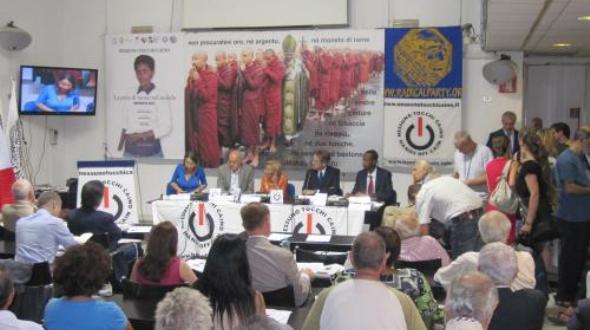
Article(s)
A Moratorium acts as a “truce” for the death penalty
on 23 August 2012
Hands Off Cain published its annual report in August. President of Sierra Leone Ernest Bai Koroma wrote the introduction and the book has been dedicated to Rwanda.
2012
Benin
Burundi
Ethiopia
Ghana
Guinea
Latvia
Maldives
Mauritania
Mongolia
Moratorium
Morocco
Myanmar
Nigeria
Rwanda
Sierra Leone
South Africa
Suriname
Uganda
United States
Zambia

Article(s)
Amnesty 2010 stats: retentionist countries increasingly isolated
on 28 March 2011
Countries which continue to use the death penalty are being left increasingly isolated following a decade of progress towards abolition, Amnesty International has said in its new report Death Sentences and Executions in 2010.
2011
China
Drug Offenses
Egypt
Fair Trial
Indonesia
Iran (Islamic Republic of)
Juveniles
Lao People's Democratic Republic
Libya
Malaysia
Moratorium
Pakistan
Sudan
Thailand
United Arab Emirates
United States
Yemen
Article(s)
Taiwan’s top court rejects appeal to suspend executions
on 7 June 2010
As the legal action taken by local activists to block the use of the death penalty failed, abolitionists across Asia have been calling for an end to the death penalty in their region.
2010
Fair Trial
Taiwan
Taiwan

Article(s)
ADPAN welcomes Mongolia’s decision abolish death penalty in law
By ADPAN, on 18 December 2015
Mongolia abolished the death penalty for all crimes in law on 3 December 2015 by adopting a new Criminal Code without any reference to capital punishment. Mongolia had already taken a strong commitment in 2012 by ratifying the Second Optional Protocol to the ICCPR, and it was one of the World Coalition’s target countries for the follow-up of the ratification campaign. The new Criminal Code will come into effect in September 2016
2015
Article(s)
2009 Amnesty statistics: at least 714 executions… excluding China
on 30 March 2010
Amnesty International has released its report on the death penalty in the world in 2009. The organisation has decided to exclude China from its calculation due to the lack of transparency on capital punishment in that country.
2010
Belarus
Burundi
China
Cruel, Inhuman and Degrading Treatment and Punishment
Fair Trial
Iran (Islamic Republic of)
Iraq
Saudi Arabia
Togo
United States
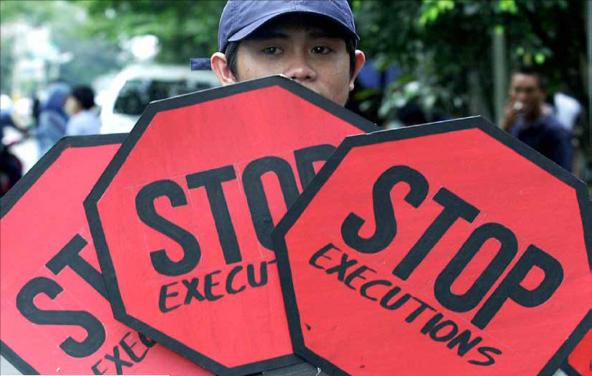
Article(s)
ASEAN countries step back on the path towards abolition
By Tiziana Trotta, on 27 October 2016
Asia has the highest number of retentionist countries in the world. Eight members of the Association of Southeast Asian Nations (ASEAN) retain the death penalty and four of them carried out executions in 2015.
2016
Drug Offenses
Terrorism
Document(s)
Investigating Attitudes to the Death Penalty in Indonesia Part One – Opinion Formers: An Appetite for Change
By Carolyn Hoyle - The Death Penalty Project, in partnership with LBH Masyarakat and the University of Indonesia, on 28 June 2021
2021
NGO report
Drug Offenses
Indonesia
Public Opinion
More details See the document
In 2019-20, The Death Penalty Project, in partnership with LBH Masyarakat and the University of Indonesia, commissioned Professor Carolyn Hoyle, of The Death Penalty Research Unit at the University of Oxford to conduct research investigating attitudes towards the death penalty in Indonesia.
The findings have been presented in a two-part report; the first details the findings of a nuanced public survey and the second details the findings of interviews conducted with opinion formers.
- Document type NGO report
- Countries list Indonesia
- Themes list Drug Offenses / Public Opinion
Document(s)
The Death Penalty in 2020: Year-End Report
By Death Penalty Information Center, on 1 January 2020
2020
NGO report
United States
More details See the document
2020 was abnormal in almost every way, and that was clearly the case when it came to capital punishment in the United States. The interplay of four forces shaped the U.S. death penalty landscape in 2020: the nation’s long-term trend away from capital punishment; the worst global pandemic in more than a century; nationwide protests for racial justice; and the historically aberrant conduct of the federal administration. At the end of the year, more states had abolished the death penalty or gone ten years without an execution, more counties had elected reform prosecutors who pledged never to seek the death penalty or to use it more sparingly; fewer new death sentences were imposed than in any prior year since the Supreme Court struck down U.S. death penalty laws in 1972; and despite a six-month spree of federal executions without parallel in the 20th or 21st centuries, fewer executions were carried out than in any year in nearly three decades.
- Document type NGO report
- Countries list United States
Document(s)
The Death Penalty In 2018: Year End Report
By Death Penalty Information Center / Death Penalty Information Centre, on 1 January 2018
2018
NGO report
More details See the document
New death sentences and executions remained near historic lows in 2018 and a twentieth state abolished capital punishment, as public opinion polls, election results, legislative actions, and court decisions all reflected the continuing erosion of the death penalty across the country.
- Document type NGO report
- Themes list Death Penalty,
Document(s)
Annual Report: Death Penalty in Iran 2011
By Iran Human Rights (IHR), on 1 January 2011
2011
NGO report
enfafrfafrMore details See the document
The execution wave that began after the June 2009 post-election protests in Iran continues with high frequency. According to the present report, the execution figure in 2011 is currently the highest since the beginning of 1990’s.
- Document type NGO report
- Themes list Minorities, Religion , Country/Regional profiles,
- Available languages Annual Report: Death Penalty in Iran 2012گزارش سالانھ مجازات اعدام در ایران سال ۲۱۰۲Rapport Annuel sur la peine de mort en Iran 2012گزارش سالانه اعدام در ایرا سال ۱۱۲۲Rapport annuel sur la peine de mort en Iran 2011
Document(s)
Report No. 262. The Death Penalty
By The Law Commission of India, on 1 January 2015
2015
Government body report
More details See the document
The Law Commission of India examines the status of the death penalty in the country. Even if Report No. 262 still considers appropriate to maintain the death penalty for terrorism related crimes, it marks an historic shift insofar it recommends India to move towards the abolition of the death penalty. The Law Commission thinks that abolitionism does not constitute a risky experiment anymore, since the Indian socio-economic and cultural environment has greatly changed.
- Document type Government body report
- Themes list Trend Towards Abolition, Most Serious Crimes, Death Penalty,
Document(s)
Annual Report – 2019 World Day
By World Coalition Against the Death Penalty, on 8 September 2020
2020
NGO report
frMore details Download [ pdf - 577 Ko ]
Report of the 2019 World Day
- Document type NGO report
- Themes list World Coalition Against the Death Penalty,
- Available languages Rapport annuel - Journée mondiale 2019
Document(s)
2015 World Day Report
By World Coalition Against the Death Penalty, on 1 January 2016
2016
NGO report
frMore details Download [ pdf - 2276 Ko ]
On 10 October 2015, the World Coalition Against the Death Penalty along with abolitionist activists worldwide marked the 13th World Day against the Death Penalty by drawing attention to the death penalty for drug crimes. This report presents the activities organised for the 13th world day and the media coverage it received.
- Document type NGO report
- Themes list World Coalition Against the Death Penalty, Terrorism,
- Available languages Rapport Journée Mondiale 2015
Document(s)
The Death Penalty in 2017: Year End Report
By Death Penalty Information Center, on 1 January 2017
2017
NGO report
More details See the document
tences remained near historically low levels in 2017, as public support for the death penalty fell to its lowest level in 45 years, according to a report released today by the Death Penalty Information Center (DPIC). Eight states carried out 23 executions, half the number of seven years ago, and the second lowest total since 1991. Only the 20 executions in 2016 were lower. Fourteen states and the federal government are projected to impose 39 new death sentences in 2017, the second lowest annual total since the U.S. Supreme Court declared the death penalty unconstitutional in 1972. It was the seventh year in a row that fewer than 100 death sentences were imposed nationwide.
- Document type NGO report
- Themes list Capital offences, Cruel, Inhuman and Degrading Treatment and Punishment, Arbitrariness, Death Row Conditions, Death Penalty, Country/Regional profiles,
Document(s)
2013 World Day Report
By World Coalition Against the Death Penalty, on 1 January 2014
2014
Campaigning
More details Download [ pdf - 2154 Ko ]
This report presents the theme of 2013 World Day, facts on the death penalty and all the actions and media coverage for the 11th World Day on the progress made and challenges ahead.
- Document type Campaigning
- Themes list Public opinion, Mandatory Death Penalty,
Document(s)
A Summary Report on Public Support for the Death Penalty in Ghana
By University of Cambridge / Peter Atupare Atudiwe, on 1 January 2014
Academic report
More details See the document
This report provides evidence on public attitudes to the death penalty in Ghana, withan empirical focus on Accra.
- Document type Academic report
- Themes list Public opinion, Statistics,
Document(s)
The Report of the Oklahoma Death Penalty Review Commission
By The Constitution Project, on 1 January 2016
2016
NGO report
More details See the document
The Oklahoma Death Penalty Review Commission (Commission) came together shortly after the state of Oklahoma imposed a moratorium on the execution of condemned inmates. In late 2015, Oklahoma executions were put on hold while a grand jury investigated disturbing problems involving recent executions, including departures from the execution protocols of the Department of Corrections. The report of the grand jury, released in May of 2016, was highly critical and exposed a number of deeply troubling failures in the final stages of Oklahoma’s death penalty
- Document type NGO report
- Themes list World Coalition Against the Death Penalty, Death Penalty,
Document(s)
2016 World Day report
By World Coalition Against the Death Penalty, on 1 January 2017
2017
NGO report
frMore details Download [ pdf - 1151 Ko ]
On 10 October 2016, the World Coalition Against the Death Penalty along with abolitionist activists worldwide marked the 13th World Day against the Death Penalty by drawing attention to the death penalty for terrorism. This report presents the activities organised for the 13th world day and the media coverage it received.
- Document type NGO report
- Available languages Rapport Journée mondiale 2016
Document(s)
Question of the death penalty. Report of the Secretary-General.
By United Nations, on 1 January 2011
2011
International law - United Nations
ruzh-hantesMore details See the document
The present report contains information covering the period from July 2010 to June 2011, and draws attention to a number of phenomena, including the continuing trend towards abolition, the ongoing difficulties in gaining access to reliable information on executions, and various international efforts towards the universal abolition of the death penalty.
- Document type International law - United Nations
- Themes list Trend Towards Abolition,
- Available languages Вопрос о смертной казни. Доклад Генерального секретаря.死刑问题. 秘书长的报告.La cuestión de la pena capital. Informe del Secretario General.
Document(s)
THE DEATH PENALTY IN 2014: YEAR END REPORT
By Death Penalty Information Center, on 1 January 2014
2014
NGO report
More details See the document
With 35 executions this year, 2014 marks the fewest people put to death since 1994, according to this report by the Death Penalty Information Center (DPIC). The 72 new death sentences in 2014 is the lowest number in the modern era of the death penalty, dating back to 1974. Executions and sentences have steadily decreased, as Americans have grown more skeptical of capital punishment. The states’ problems with lethal injections also contributed to the drop in executions this year.Death sentences—a more current barometer than executions—have declined by 77% since 1996, when there were 315. There were 79 death sentences last year. This is the fourth year in a row that there have been fewer than 100 death sentences.
- Document type NGO report
- Themes list Mental Illness, Innocence, Intellectual Disability, Lethal Injection, Statistics,
Document(s)
Death Penalty in India: Annual Statistics Report 2020
By Project 39A, on 1 January 2020
2020
Academic report
India
More details See the document
The ‘Death Penalty in India: Annual Statistics’ attempts to create a comprehensive year-by-year documentation of movements in the death row population in India. The publication tracks important political and legal developments in the administration of the death penalty and the criminal justice system in the year 2020.
- Document type Academic report
- Countries list India
Document(s)
Annual report on the death penalty in Iran 2019
By Ensemble contre la peine de mort (ECPM) / Iran Human Rights (IHR), on 1 January 2020
NGO report
fafrMore details See the document
On March 31, 2020, the 12th annual report on the death penalty in Iran 2019 was published by Iran Human Rights (IHR) and ECPM (Together Against the Death Penalty). It provides an assessment and analysis of the death penalty trends in 2019 in the Islamic Republic of Iran. It sets out the number of executions in 2019, the trend compared to previous years, the legislative framework and procedures, charges, geographic distribution and a monthly breakdown of executions. Lists of the female and juvenile offenders executed in 2019 are also included in the tables.
- Document type NGO report
- Themes list Juveniles, Drug Offences, Country/Regional profiles,
- Available languages گزارش سالانه مجازات اعدام در ایران 2019Rapport annuel sur la peine de mort en Iran 2019
Document(s)
Annual Report on the Death Penalty: The Case of Puerto Rico – 2015
By Puerto Rican Coalition against the Death Penalty, on 8 September 2020
2020
NGO report
Puerto Rico
fresMore details Download [ pdf - 98 Ko ]
After a presentation of the legislation regarding the death penalty in Puerto Rico, the report covers the death penalty situation in the State in 2015 (Puerto Ricans facing the death penalty in Puerto Rico and well as in U.S. states).
- Document type NGO report
- Countries list Puerto Rico
- Themes list Death Penalty, Country/Regional profiles,
- Available languages Rapport annuel Peine de Mort: le cas de Porto Rico - 2015Informe Anual Pena de Muerte: El Caso de Puerto Rico 2015
Document(s)
Report of the General Secretary of the United Nations 2013
By United Nations, on 1 January 2013
2013
International law - United Nations
More details See the document
The report contains information on the question of the death penalty, and reports that the international community as a whole is moving towards the abolition of the death penalty in law or in practice. Nevertheless, a small number of States have continued to use the death penalty and in many instances, int ernational standards guaranteeing the protection of the rights of those facing the death penalty were not fully respected. Thereport also discusses the continued difficulties in gaining access to reliable information regarding executions, and issues related to the hum an rights of children of parents sentenced to the death penalty or executed.
- Document type International law - United Nations
- Themes list Death Penalty,
Document(s)
China Against the Death Penalty Report 2012
By China Against the Death Penalty, on 1 January 2012
2012
NGO report
zh-hantMore details Download [ pdf - 170 Ko ]
The original report in Chinese was in three parts. Part I, translated here, outlines the legal system and its application in relation to the death penalty. Part II introduces the use of the death penalty review system following the Supreme People’s Court’s resumption of its power to review death sentences on January 1st, 2007. Part II also analyses the influence of the death penalty review system on the new criminal procedure law that will come into effect in 2013. Part III introduces a number of death penalty cases.
- Document type NGO report
- Themes list Country/Regional profiles,
- Available languages 中国死刑观察报告
Document(s)
Annual Report
By Puerto Rican Coalition against the Death Penalty, on 1 January 2013
2013
NGO report
esMore details Download [ pdf - 77 Ko ]
The information presented in this annual report covers the situation about death penalty cases, regarding Puerto Ricans who face death penalty proceedings in the federal jurisdiction, as well as in those states of the U.S. where such punishment is strictly upheld, and a case of petition for extradition.
- Document type NGO report
- Themes list Country/Regional profiles,
- Available languages Informe Anual 2012
Document(s)
Annual Report on the Death Penalty in Iran 2018
By Ensemble contre la peine de mort (ECPM) / Iran Human Rights (IHR), on 1 January 2019
2019
NGO report
More details See the document
This report provides an assessment and analysis of death penalty trends in 2018 in the Is-lamic Republic of Iran. It sets out the number of executions in 2018, the trend compared to previous years, the legislative framework and procedures, charges, geographic distribution and a monthly breakdown of executions.
- Document type NGO report
- Themes list World Coalition Against the Death Penalty, Death Penalty, Country/Regional profiles,
Document(s)
Caribbean Human Development Report – Human Development and the Shift to Better Citizen Security
By United Nations Development Programme, on 8 September 2020
2020
NGO report
More details See the document
The Caribbean Human Development Report reviews the current state of crime as well as national and regional policies and programmes to address the problem in seven English- and Dutch-speaking Caribbean countries: Antigua and Barbuda, Barbados, Guyana, Jamaica, Saint Lucia, Suriname, and Trinidad and Tobago. The new study recommends that Caribbean governments implement youth crime prevention through education, as well as provide employment opportunities that target the marginalized urban poor. A shift in focus is needed it says, from a state protection approach to one that focuses on citizen security and participation, promoting law enforcement that is fair, accountable, and more respectful of human rights.
- Document type NGO report
- Themes list Death Penalty,
Document(s)
2018 World Day – Report
By World Coalition Against the Death Penalty, on 8 September 2020
NGO report
frMore details Download [ pdf - 730 Ko ]
Report of the 2018 World Day Against the Death Penalty, on the conditions of detention on death row.
- Document type NGO report
- Themes list Death Row Conditions, World Coalition Against the Death Penalty, Death Penalty,
- Available languages Journée mondiale 2018 - Rapport
Document(s)
The Death Penalty in 2019: Year End Report
By Death Penalty Information Center, on 1 January 2019
2019
NGO report
More details See the document
The US death penalty usage remains near record lows in 2019.
- Document type NGO report
- Themes list Due Process , Innocence, Statistics,
Document(s)
Activity Report 2015
By World Coalition Against the Death Penalty, on 1 January 2016
2016
NGO report
frMore details Download [ pdf - 1253 Ko ]
Executions worldwide increased dramatically in number in 2015, dueprincipally to sharp increases in Pakistan, Iran and Saudi Arabia. At thesame time, this Activity Report for 2015 also reflects real progress toward abolition in the Americas and sub-Saharan Africa. Thesteady, consistent work of educating and encouraging accession toregional and international instruments to end the death penalty, is anincremental strategy that continues to bear fruit.
- Document type NGO report
- Themes list World Coalition Against the Death Penalty,
- Available languages Rapport D'Activités 2015
Document(s)
Annual report on the death penalty in Iran 2013
By Ensemble contre la peine de mort (ECPM) / Iran Human Rights (IHR), on 1 January 2014
2014
NGO report
fafrMore details See the document
The sixth annual report of Iran Human Rights (IHR) on the death penalty gives an assessment of how the death penalty was implemented in 2013 in the Islamic Republic of Iran.
- Document type NGO report
- Themes list Juveniles, Women, Minorities, Religion , Fair Trial, International law, Transparency, Drug Offences, Torture, Discrimination, Foreign Nationals, Hanging, Stoning, Death Penalty, Statistics, Country/Regional profiles,
- Available languages گزارش سالانه اعدام در ايران – سال ٢٠١٣ میلادیRapport annuel sur la peine de mort en iran 2013
Document(s)
UPR death penalty stakeholder report template
By The Advocates for Human Rights, on 1 January 2015
2015
Working with...
More details See the document
Template for civil society submissions to the Universal Periodic Review of human rights organised by the United Nations.
- Document type Working with...
- Themes list International law,
Document(s)
Report on Taiwan and Art.6 ICCPR
By World Coalition Against the Death Penalty, on 1 January 2013
2013
NGO report
More details Download [ msword - 95 Ko ]
In view of Taiwan’s Human Rights Review in the framework of the ratification of the International Covenant on Civil and Political Rights (ICCPR), the World Coalition Against the Death Penalty submitted a report regarding the situation of the death penalty in Taiwan.
- Document type NGO report
- Themes list Right to life, Clemency, Country/Regional profiles,
Document(s)
2017 World Day report
By World Coalition Against the Death Penalty, on 1 January 2018
2018
NGO report
frMore details Download [ pdf - 2252 Ko ]
On 10 October 2017, the World Coalition Against the Death Penalty along with abolitionist activists worldwide marked the 15th World Day against the Death Penalty by drawing attention to the death penalty and its link with poverty. This report presents the activities organised for the 15th world day and the media coverage it received.
- Document type NGO report
- Themes list World Coalition Against the Death Penalty, Death Penalty,
- Available languages Rapport Journée mondiale 2017
Document(s)
Bahrain The Death Penalty Joint Stakeholder Report for the United Nations Universal Periodic Review
By The Advocates for Human Rights, on 1 January 2017
2017
NGO report
More details See the document
- Document type NGO report
- Themes list International law, Member organizations, Death Penalty,
Document(s)
Sentenced to Death: A Report on Washington Supreme Court Rulings In Capital Cases
By American Civil Liberties Union / Washington, on 1 January 2001
2001
NGO report
More details See the document
The ACLU conducted an analysis of court rulings in the 25 Washington cases in which the death sentence has been imposed since 1981, when the current death penalty statute took effect. That analysis of almost two decades of death sentences and executions makes it clear that the system by which we impose and review death sentences in Washington is fundamentally flawed.
- Document type NGO report
- Themes list Networks,
Document(s)
The Death Penlty In 2011: Year End Report
By Death Penalty Information Center / Richard C. Dieter, on 1 January 2011
2011
International law - Regional body
More details See the document
The number of new death sentences dropped dramatically in 2011, falling below 100 for the first time in the modern era of capital punishment. Executions also continued decline, while developments in a variety of states illustrated the growing discomfort that many Americans have with the death penalty.
- Document type International law - Regional body
- Themes list Trend Towards Abolition,
Document(s)
Report : Third World Congress Against the Death Penalty
By Ensemble contre la peine de mort (ECPM), on 1 January 2008
2008
NGO report
frMore details See the document
Participants in the Third World Congress Against the Death Penaltyin Paris have repeated again and again that the universal abo-lition of the death penalty is underway. The work carried outin Paris 2007 has clearly shown it: an irreversible downwardtrend in the number of death sentences and executions is vis-ible worldwide. Above all an increasing number of nations haveabandoned this useless and cruel practice.
- Document type NGO report
- Themes list Trend Towards Abolition, World Coalition Against the Death Penalty,
- Available languages Actes : 3e Congrès mondial contre la peine de mort
Document(s)
FHRI and PRI submission to the UN Sec-Gen report on the status of the death penalty in East Africa – Kenya and Uganda April 2012
By Penal Reform International, on 8 September 2020
2020
NGO report
Kenya
More details See the document
Two trends accompanying the abolition of the death penalty give reason for concern: there is a striking increase in offences that carry the sanction of life imprisonment as the sanction which typically replaces the death penalty following abolition or a moratorium of the death penalty; and a striking increase in prisoners serving this indefinite sentence. Secondly, a differential, harsher treatment is applied to them as compared to other categories of prisoners. At the same time, the development of international standards in any affirmative–if not legally binding– form are lacking. As a consequence states are more frequently enforcing a form of punishment problematic in terms of international human rights standards and norms.
- Document type NGO report
- Countries list Kenya
- Themes list Trend Towards Abolition,
Document(s)
Barbados: Death Penalty Stakeholder Report for the Universal Periodic Review
By The Advocates for Human Rights, on 1 January 2017
2017
NGO report
More details See the document
- Document type NGO report
- Themes list International law, Member organizations, Death Penalty,
Document(s)
FHRI and PRI submission to the UN Sec-Gen report on the status of the death penalty in East Africa – Kenya and Uganda April 2012
By Penal Reform International, on 8 September 2020
2020
NGO report
Kenya
More details See the document
To date, Kenya and Uganda have not signed the Second Optional Protocol to the International Covenant on Civil and Political Rights and are not party to any international or regional treaty prohibiting the death penalty. While Kenya abstained from voting in the 2010 UN General Assembly moratorium resolution, Uganda voted against it and signed the note verbale of issociation.
- Document type NGO report
- Countries list Kenya
- Themes list Cruel, Inhuman and Degrading Treatment and Punishment, Discrimination, Country/Regional profiles,
Document(s)
The Bahamas: Death Penalty Joint Stakeholder Report for the United Nations Universal Periodic Review
By The Advocates for Human Rights, on 1 January 2017
2017
NGO report
More details See the document
- Document type NGO report
- Themes list International law, Member organizations, Death Penalty,
Document(s)
Summary of Hands Off Cain 2014 Report
By HANDS OFF CAIN, on 1 January 2014
2014
NGO report
More details See the document
The worldwide trend towards abolition, underway for more than fifteen years, was again confirmed in 2013 and the first six months of 2014.There are currently 161 countries and territories that, to different extents, have decided to renounce the death penalty. Of these: 100 are totally abolitionist; 7 are abolitionist for ordinary crimes; 6 have a moratorium on executions in place and 48 are de facto abolitionist (i.e. Countries that have not carried out any executions for at least 10 years or countries which have binding obligations not to use the death penalty).Countries retaining the death penalty worldwide declined to 37 (as of 30 June 2014), compared to 40 in 2012. Retentionist countries have gradually declined over the last few years: there were 43 in 2011, 42 in 2010, 45 in 2009, 48 in 2008, 49 in 2007, 51 in 2006 and 54 in 2005.
- Document type NGO report
- Themes list Statistics,
Document(s)
What Strategies Towards the Abolition of the Death Penalty in West Africa? : Report of the Symposium in Dakar
By FIACAT, on 1 January 2012
2012
NGO report
More details See the document
The regional seminar on the abolition of the death penalty in West Africa took place inDakar (Senegal) from 12-14 November 2012. This workshop brought together nineteenACAT members affiliated to FIACAT. It was therefore possible for each of the nine West Afri-can ACATs1to be represented by two participants (with the exception of Senegal, whichwas represented by three members).Participants at the workshop attended lectures and had the opportunity to developnational action plans for achieving abolition in their countries. According to feedbackreceived at the end of the seminar, attendees found the practical nature of the lectures,and the opportunity to network with other ACATs and learn from the experiences of otherparticipants, particularly beneficial.This document is a collection of all of the lectures from the Dakar seminar, as well asinternational and African texts relating to the death penalty. It is intended as a practicaltool to assist us as we progress towards abolition in Sub-Saharan Africa.
- Document type NGO report
- Themes list Trend Towards Abolition, Member organizations, Country/Regional profiles,
Article(s)
Statement on executions in the USA
By World Coalition Against the Death Penalty, on 21 June 2019
As the worldwide trend towards abolition of the death penalty grows, the World Coalition Against the Death Penalty notes with concerns that the USA has reached a total of 1500 executions since 1977.
2019
United States
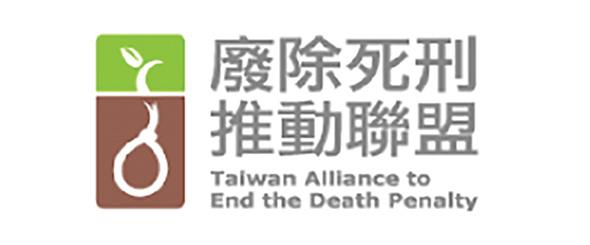
Article(s)
TAEDP Withdraws from Ministry of Justice’s Task Force to Research the Gradual Abolition of the Death Penalty
By TAEDP, on 30 April 2020
TAEDP Press Release, April 2, 2020The Taiwan Alliance to End the Death Penalty made this decision after the Ministry of Justice, in total disregard for the rule of law, arbitrarily and illegally executed a death row inmate on April 1, 2020.
2020
Taiwan
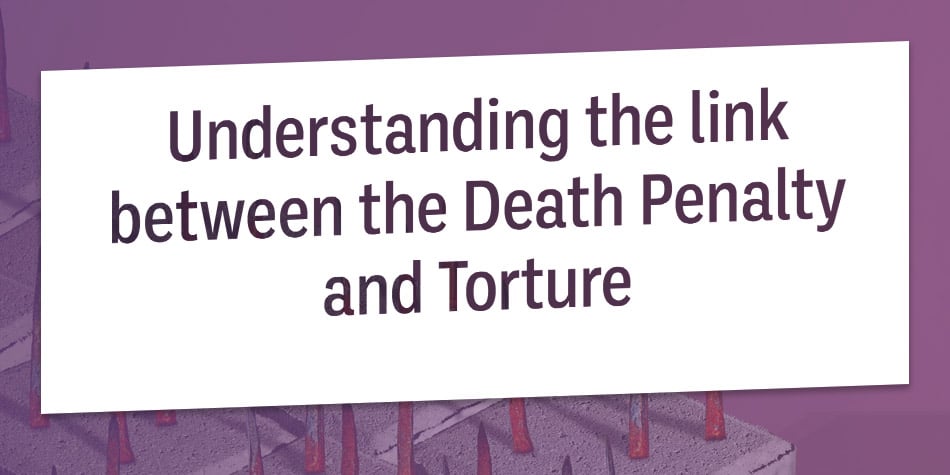
Article(s)
International Day in Support of Victims of Torture: Understanding the link between the Death Penalty and Torture
By Wendy Adouki, on 26 June 2023
Today, 26th June 2023, the world is commemorating the International Day in Support of Victims of Torture (International Day). Started in 1987, this International Day began when the United Nations Convention Against Torture and Other Cruel, Inhuman or Degrading Treatment or Punishment (UN Convention Against Torture) came into force; a crucial legal text to combat […]
2023
Cruel, Inhuman and Degrading Treatment and Punishment
Death Row Conditions
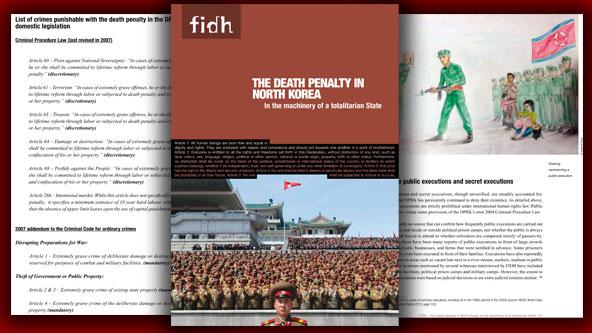
Article(s)
Death penalty still used to make examples in North Korea
By Thomas Hubert, on 19 May 2013
An investigation of testimonies from North Korean refugees by FIDH describes the political use of widespread executions – although their number remains secret.
2013
Cruel, Inhuman and Degrading Treatment and Punishment
Democratic People's Republic of Korea
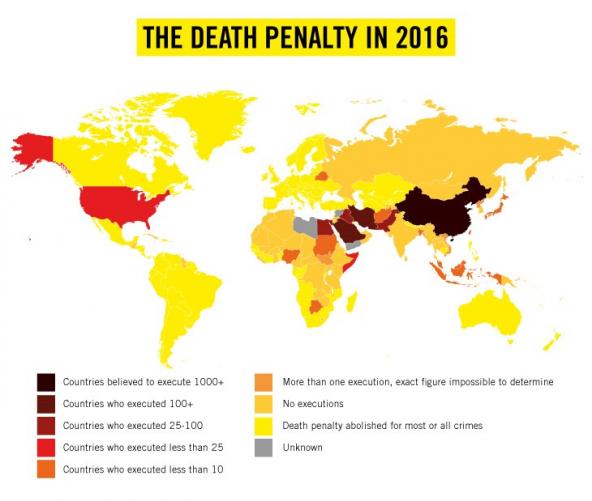
Article(s)
Death Sentences and Executions in 2016
By Amnesty International, on 11 April 2017
Amnesty International published its 2016 global review of the death penalty on Tuesday, April 11th 2017.Excluding China, states around the world executed 1,032 people in 2016. China executed more than all other countries in the world put together, while the USA reached a historic low in its use of the death penalty in 2016.
2017
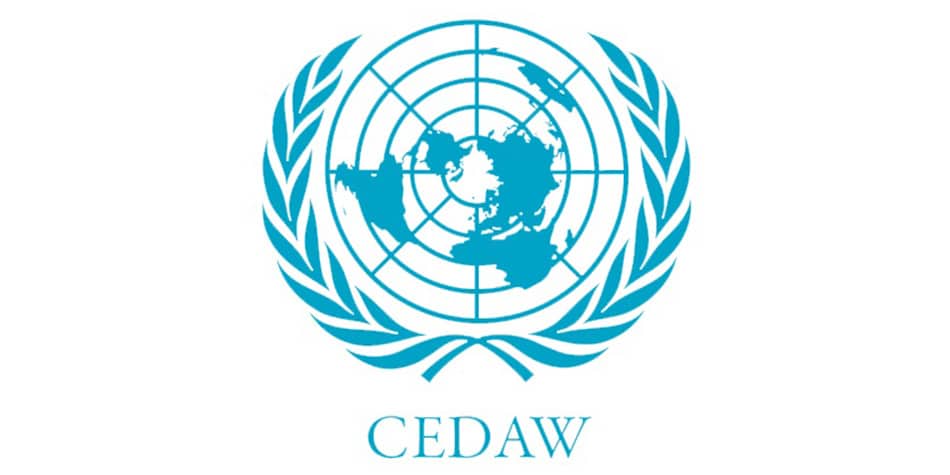
Article(s)
Abolitionist advocacy at the 88th CEDAW Session
on 7 June 2024
The 88th session of the Committee on the Elimination of Discrimination Against Women (CEDAW) was held in Geneva, Switzerland, from May 13 to 31, 2024.
2024
Brazil
Estonia
Gender
Kuwait
Malaysia
Montenegro
Republic of Korea
Rwanda
Singapore
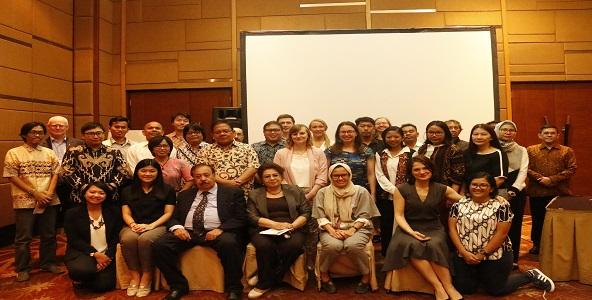
Article(s)
Dialogue on the death penalty during the 20th anniversary of the Reformasi
By Clémentine Etienne, on 27 June 2018
20 years after the end of the dictatorship, Indonesia is going through a period of legal changes and transition. What impact can abolitionist associations and NGOs working on the ground have in encouraging the actions of legal counsellors and civil society?
2018
Indonesia
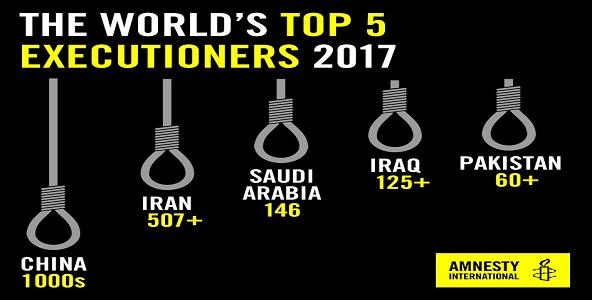
Article(s)
Death Sentences and Executions in 2017
By Amnesty International, on 12 April 2018
Amnesty International published its international global review of the death penalty on Tuesday, 12th April 2018.At least 993 executions in 23 countries in 2017 were recorded, down by 4% from 2016 (1,032 executions) and 39% from 2015 (when the organization reported 1,634 executions, the highest number since 1989). China remained the world’s top executioner, but excluding China, 84% of all reported executions took place in just four countries – Iran, Saudi Arabia, Iraq and Pakistan.
2018
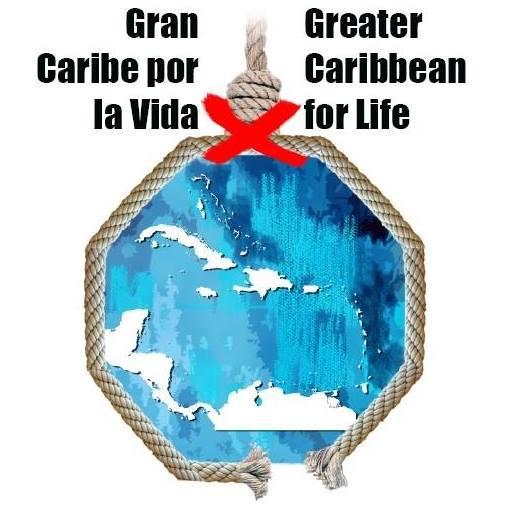
Article(s)
10 years with no hanging in the Caribbean
By Greater Caribbean for Life, on 19 December 2018
The Greater Caribbean for Life (GCL) notes that 19 December, 2018 marks the 10th anniversary of the hanging of Charles la Place in St Kitts and Nevis. He was the last person who was hanged in the English-speaking Caribbean.
2018

Article(s)
Sierra Leone abolishes the Death Penalty
By World Coalition Against the Death Penalty , on 2 August 2021
On Friday 23rd July 2021, Sierra Leone’s Parliament unanimously abolished the death penalty by passing the Abolition of the Death Penalty Act.
2021
Public Opinion
Sierra Leone

Article(s)
How Likely Is the Return of the Death Penalty in Israel?
By World Coalition against the Death Penalty, on 22 May 2023
Early 2023, the newly elected government of Israel announced an ensemble of judicial reforms; including a new bill that would introduce the death penalty for acts of terrorism. As of May 2023, the judicial reforms have been put on hold by the PM Netanyahu. This article takes a historical perspective to recontextualize the issue of […]
2023
Israel
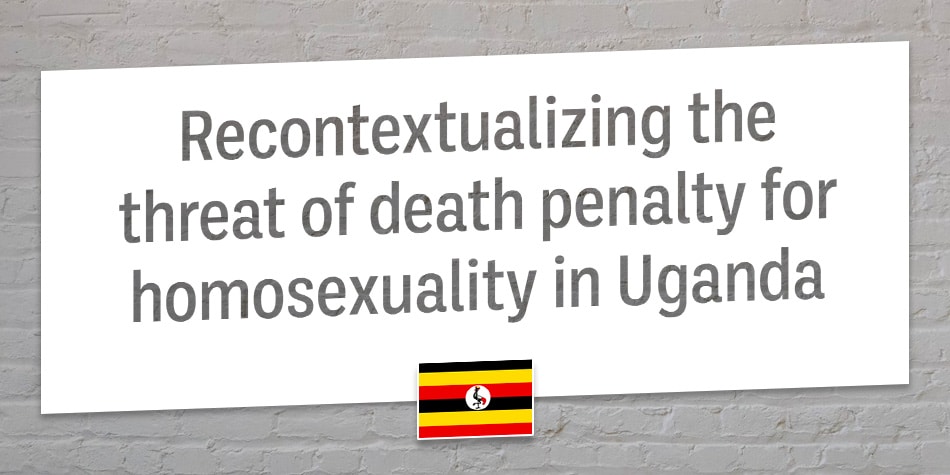
Article(s)
Recontextualizing the threat of death penalty for homosexuality in Uganda
By Méline Szwarcberg, on 2 May 2023
On Tuesday March 21, the Ugandan parliament passed a law that severely criminalizes people who have consensual same-sex relations. At the end of April, the law had still not been validated by the President Museveni. Among a range of harsh penalties, the law would allow the death penalty for the crime of « aggravated homosexuality […]
2023
Gender
Uganda
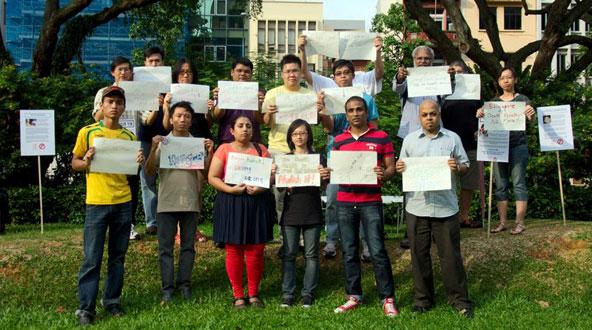
Article(s)
Migrant workers facing capital punishment show need for alternative sentences
By Think Centre, on 26 April 2012
Four Singapore-based organisations denounce the high risk of miscarriage of justice in recent death sentences handed down on poor immigrants and calls for the abolition of the death penalty in the city-state.
2012
Cruel, Inhuman and Degrading Treatment and Punishment
Moratorium
Singapore
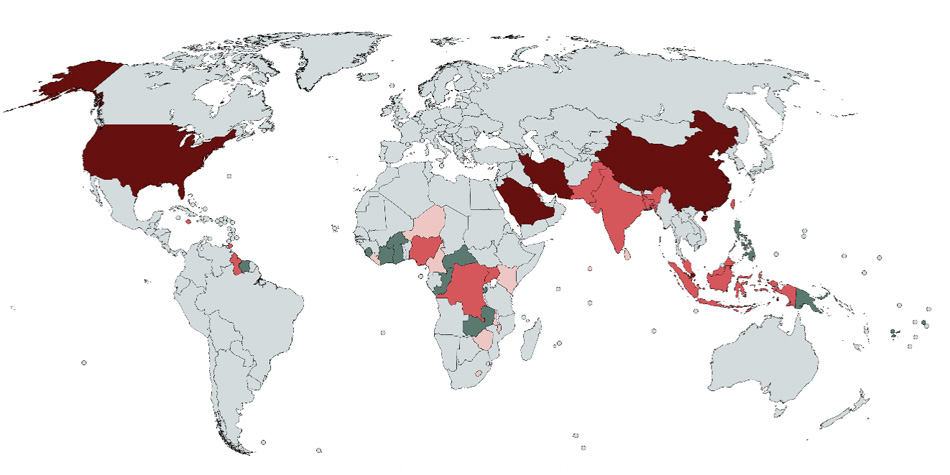
Article(s)
Strengthening the Abolitionist Movement: Launch of the Global Consortium for Death Penalty Abolition
By World coalition against the death penalty, on 12 July 2024
Despite a growing number of countries worldwide joining the abolitionist movement every year, bringing the prospect of universal abolition closer to reality, the death penalty remains a significant human rights concern.
2024
Trend Towards Abolition
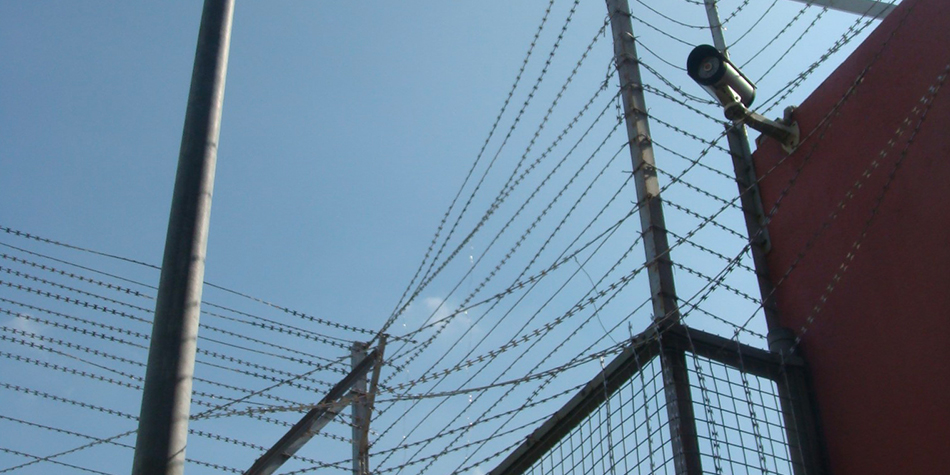
Article(s)
Does one year of “double zero” mean the death penalty has been repealed? How close is Taiwan to abolishing capital punishment?
By Lin Hsin-yi, Executive Director of the Taiwan Alliance to End the Death Penalty, on 28 April 2022
After the end of the last workday of 2021, it became clear that no one would be sentenced to death or executed that year – the first time ever that Taiwan has experienced “double-zero.”
2022
Taiwan
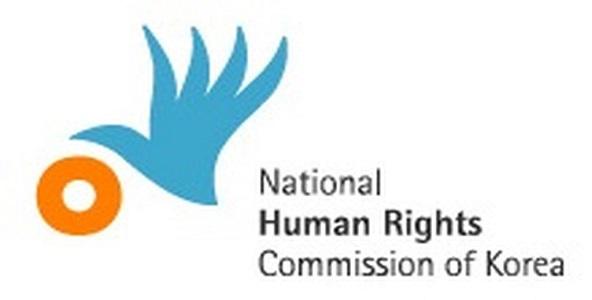
Article(s)
After more than 20 years without executions, a trend toward an official moratorium?
By Clémentine Etienne, on 27 June 2018
On 18 June 2018, the Korean National Human Rights Commission (NHRC) called on the South Korean President to declare an official moratorium on the death penalty to mark the 70th anniversary of the Universal Declaration of Human Rights on December 10.
2018
Republic of Korea
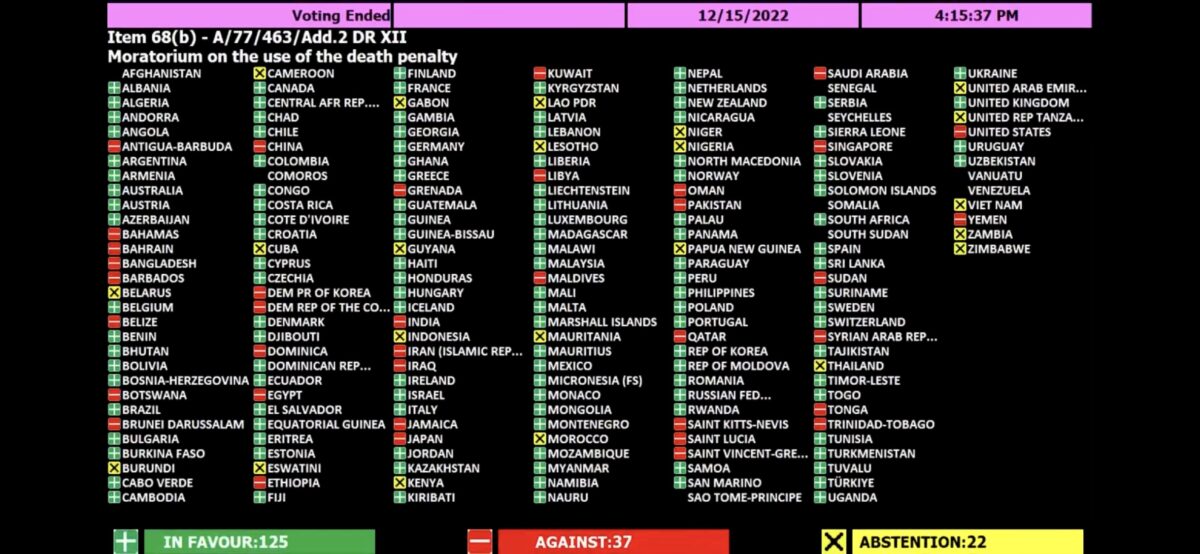
Article(s)
9th Resolution for a moratorium on the death penalty: the trend is growing
By World Coalition Against the Death Penalty, on 20 December 2022
On 15 December 2022, the United Nations General Assembly adopted the 9th resolution for a moratorium on the use of the death penalty with 125 votes in favor (2 more than in 2020), 37 votes against, 22 abstentions and 9 absent.
2022
Moratorium
Trend Towards Abolition
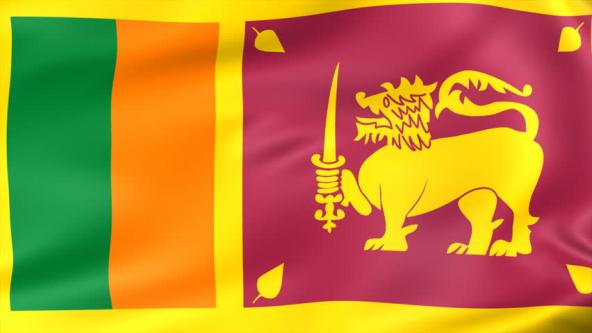
Article(s)
Sri Lanka: the death sentences of 60 prisoners commuted
By Elise Guillot, on 17 February 2017
Good news from Sri Lanka: by decision of the President, the death sentences of 60 prisoners have been commuted.
2017
Sri Lanka
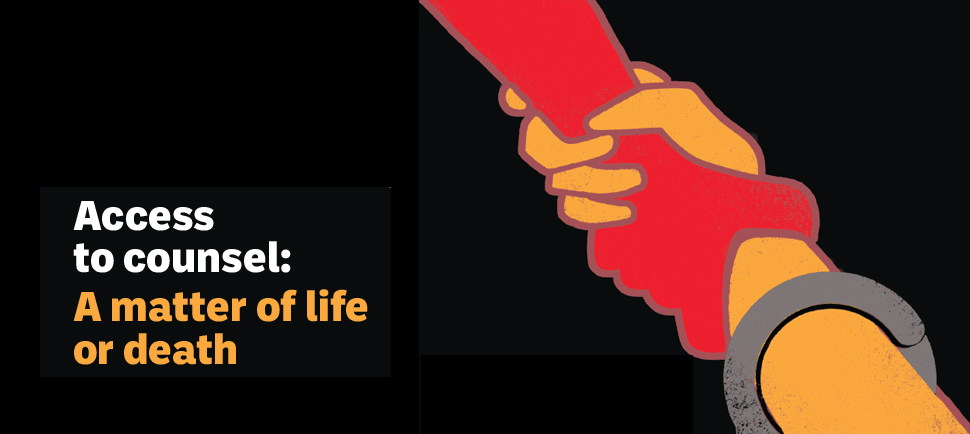
Article(s)
The 18th World Day Against the Death Penalty Highlights the Life-Saving Importance of Effective Legal Representation in Capital Cases
By Gia Tongson, on 18 November 2020
The 18th World Day Against the Death Penalty explored the theme “Access to Counsel: A Matter of Life or Death” in light of the continued execution of individuals who struggle to have adequate support from their lawyers, who consequently also face their own challenges in the judicial system. Having access to qualified and effective representation […]
2020
Australia
Belgium
Canada
Congo
Egypt
Fair Trial
France
Kazakhstan
Philippines
Portugal
Uganda

